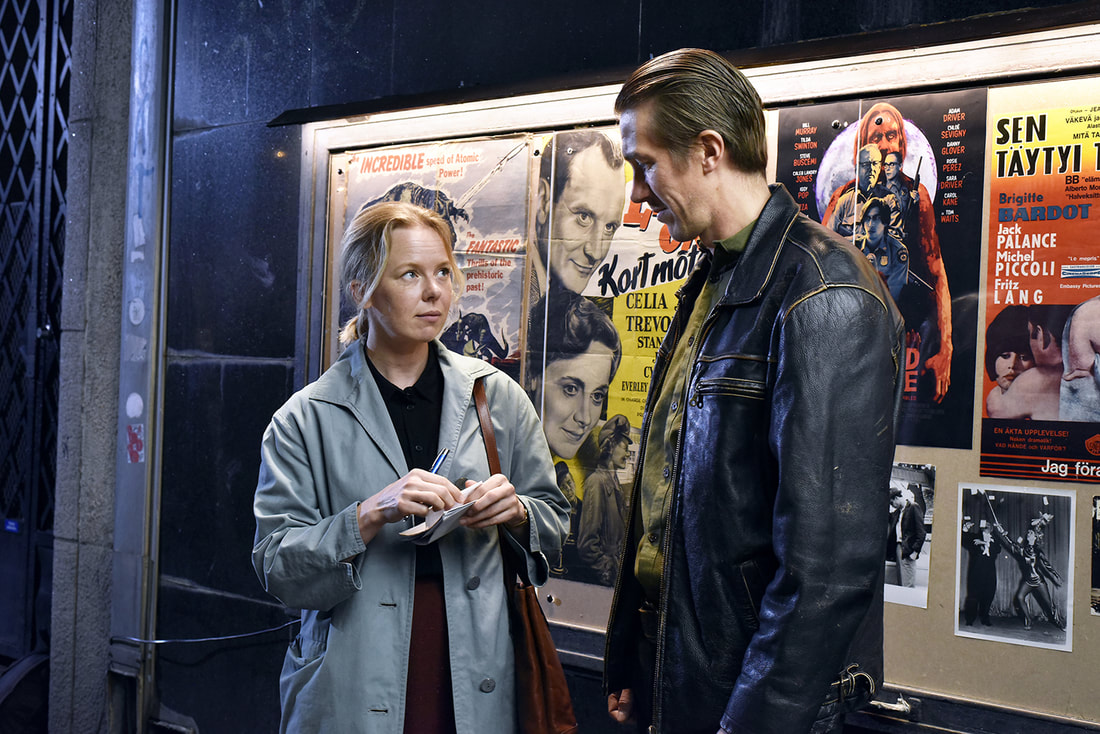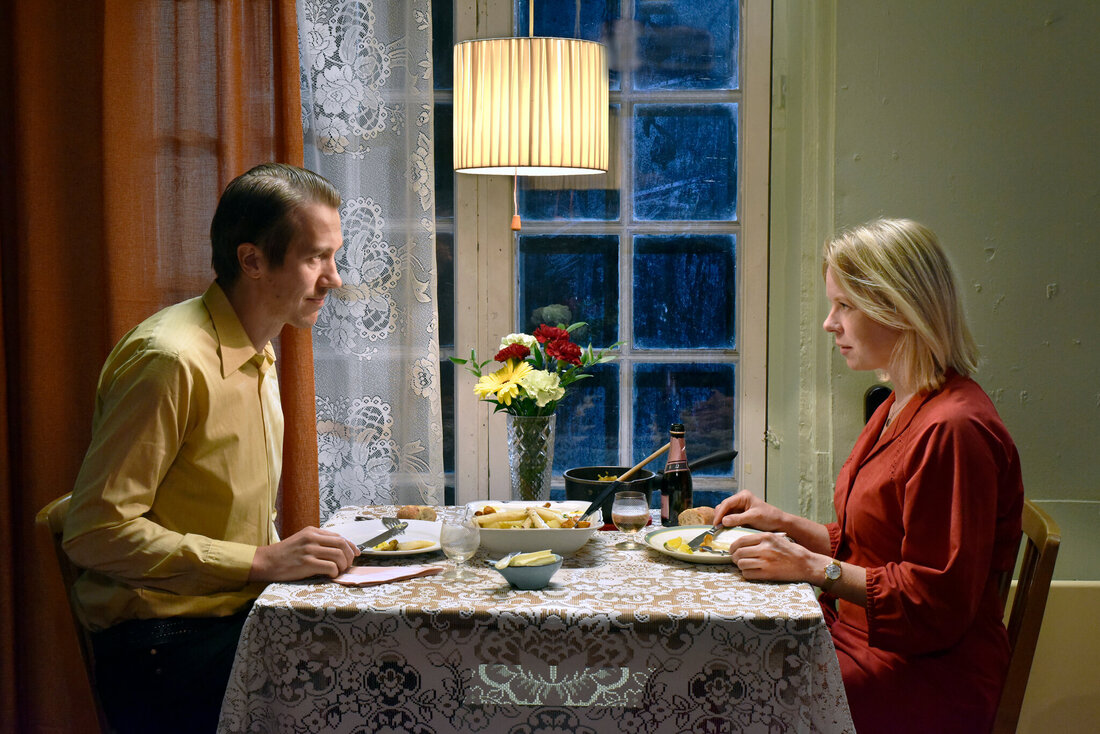|
Review by Daniel Lima To be a cog in a capitalist world is to live out your days accepting the daily suffering that system forces upon all who live under it. It comes with its creature comforts, but anyone bound to this form of servitude is acutely aware of every great and small indignity it takes to sustain them, and how precarious access to them is. Finnish writer-director Aki Kaurismäki has spent his career examining the mundane cruelties of this life, and while Fallen Leaves doesn't deviate from his established form, it is still a charming and evocative film that finds new resonance today. Alma Pöysti and Jussi Vatanen play a pair of wage workers, struggling to eke out a living in a society that refuses to recognize their humanity. Fate conspires to bring the two together only to keep them apart, yet they never stop trying to reconnect, an act of resistance against the reality thrust upon them. Kaurismäki has never balked at portraying an unromanticized vision of what life at the bottom rungs of society looks like. Characters live in shabby apartments, listen to horrific reports from the Russia-Ukraine War, go out to stark and lonely clubs for what passes for recreation. Work is unfulfilling at best, degrading at worst, reducing employees to annoying and easily replaceable business expenditures. The visual language is reflective of this dreary existence, with cold lighting, scenes cast in shadows, and the few flashes of color appearing faded and atrophied. It's a bleak portrait of the world, but an accurate one for millions of people, if not billions. He is not, however, a cynical filmmaker, and Fallen Leaves is not a cynical film. As grueling as their daily lived experience is, the characters leap at every opportunity to rebuke the notion that they must be defined by their suffering. The typical dry and sardonic wit of Kaurismäki’s scripts is here in full force, as the ensemble mock the desolate milieu around them in a way that alleviates its harshness. For every inhumane boss, there are coworkers and friends willing to show solidarity. As dingy as karaoke night at the local bar might seem at first glance, it plays host to bursts of creativity from its patrons. There is a sense that though life’s hardships are unavoidable, they are never insurmountable.
The burgeoning relationship between Pöysti and Vatanen is the ultimate act of rebellion. Kaurismäki’s actors tend to have a Bressonian lack of affect in their performances, seemingly counter-intuitive to a romance. Yet there is a willful defiance in how the two leads pursue each other, in spite of all the contrivances that undermine their efforts. It’s as if by insisting that they must be together, by forcing this connection in a world that seems devoted to crushing any attempt to forge one, they are affirming their right to happiness. Their courtship becomes our fight for self-actualization, and all the more stirring for it. Fallen Leaves does not tread new ground. The director’s oeuvre is filled with low-key comedies that show a great degree of empathy for those who struggle just to make it to the end of the day. Perhaps the fact that is such a powerful experience speaks more to the world it is being released in, when the failed promise of a neoliberal world order has degraded the quality of life of so many, than an actual evolution in his filmmaking. Whatever the case may be, this stands as one of his greatest successes. Fallen Leaves is now playing in theaters. Rating: 4.5/5
0 Comments
Leave a Reply. |
Archives
July 2024
Authors
All
|
|
|
disappointment media
Dedicated to unique and diverse perspectives on cinema! |


